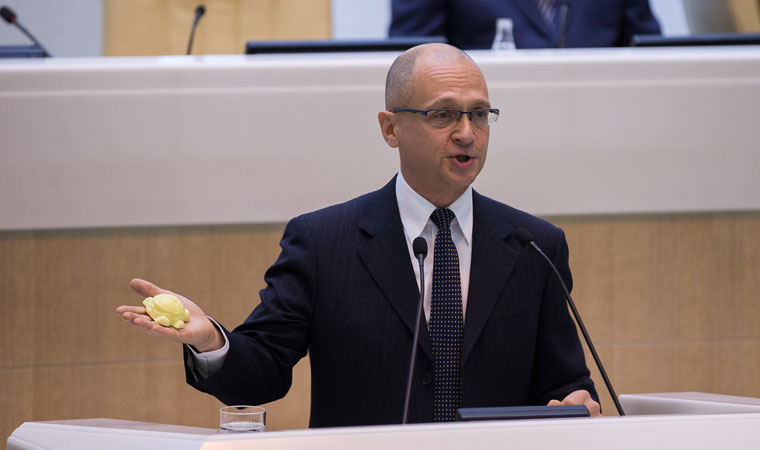
On a global and national scale
back to contentsThe Russian nuclear corporation carries out joint projects in 50 countries, Rosatom CEO said. The cooperation in civil nuclear energy supports national development. “Any country that has a nuclear station built makes a quantum leap in science, technology, industry and education,” Kirienko stressed. Until recently there were just a few major economies, such as the USA, France, Russia, Germany and the United Kingdom, that were developing the nuclear industry. “Emerging countries focus increasingly more attention on nuclear energy as the only way to become competitive and gain access to a reliable, cheap source of power in the long term. Centers of growth have moved to Southeast Asia, Latin America, Africa and the Middle East. Rather than simply recovering, demand for new nuclear stations has increased and now surpasses the level we had before the Fukushima disaster.”
According to Sergei Kirienko, Russia offers unique opportunities and is a potential leader of the global nuclear market. Thanks to its deep expertise in nuclear construction and operation, Russia can provide extensive safety guarantees for nuclear power plants it builds. At present, it operates 53 research reactors, much more as compared to 21 reactors in the USA, 10 reactors in France and eight in Germany.
“We have an end-to-end offering of products and services in our portfolio. We are the only company that can build a nuclear station and guarantee fuel supplies for its entire service life. We have sufficient uranium reserves. Moreover, Russia has 45% of global uranium enrichment capacity and possesses unparalleled waste management and decommissioning technologies. There are almost no competitors for us on the market,” Kirienko added.
Russia’s independent political stance gains credibility among customers, Kirienko noted. He cited an example of Bushehr (Iran) where Rosatom constructed a nuclear power station despite Western pressure.
Sergei Kirienko elaborated on how the Russian economy is supported by the construction of Russian-designed nuclear power plants in other countries. According to him, construction and subsequent operation of a nuclear station changes the structure of government revenue from exports. This is extremely important amidst falling oil and gas prices. “Apart from money, this helps establish long-term, strategic relations with each country we have signed a construction contract with.”
A good example is the Hanhikivi nuclear power plant to be built by Rosatom in Finland. The project will generate €17.5 billion in revenue for Russian companies and €3 billion in taxes for Russia. For your reference: the construction contract for Hanhikivi-1 was signed in late December 2013. A 10-year fuel supply contract was signed with TVEL (a Rosatom Group manufacturer of nuclear fuel) on the same date. In January 2015, the Russian Government approved the allocation of €2.4 billion (a ruble equivalent of this amount, but not more than 150 billion rubles) from the National Welfare Fund. Export-import agencies will provide coverage for €2bn in loans. Other loans will amount to 0.8 billion euro. Equity as at the commissioning date will be €1.66 billion.




